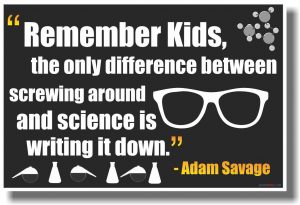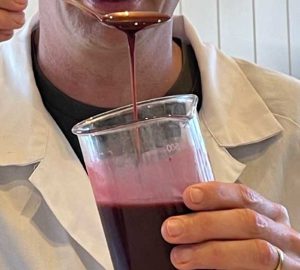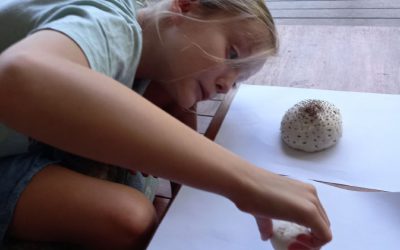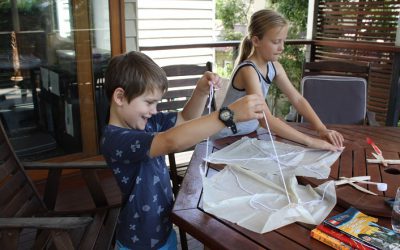The way I see it, there are 2 main elements to any bit of science you may want to learn (or teach). The theory and the practical application. In other words, there is what actually happens in the real world, and the scientific explanation as to how and why it happens.
It may seem logical to start with the theory and then move to the practical. But in reality, it is much easier for most people to understand something if they can relate that theory to something they have already experienced.
Imagine trying to understand gravity if you’d never lived with it.
Real world examples give you something to wrap the theory around when you do learn it. If you have baked bread, thrown out mouldy fruit and brewed ginger beer (non-alcoholic is fine) then understanding the Kingdom of Fungi becomes so much easier.
Learning to be a scientist is learning to do experiments.
Science is all about doing experiments, so it helps to learn early on exactly what these “experiments” entail. Basically, an experiment is a systematic way of testing an idea. Want to know which laundry liquid works best? Then you have to design an experiment that can answer that question in a fair and repeatable way. Of course, that question probably needs to be narrowed down first. There are a lot of unknowns in it and science can only really test one at a time. What temperature is the water? What kind of stain is it and what kind of fabric is being washed? Is it colours or whites? And how will you measure the cleanliness of the washed items?
It seemed so simple to start with, and then got a bit more complicated. Of course, you could run multiple tests, hot and cold water, grass stains and coffee, cottons and synthetics, it will just take a bit longer. But if you start with a nice clear and narrow question, then you can decide what you think will happen, based on what you know or have seen already. This is your hypothesis or prediction. Then you plan out what you will do and importantly what you will measure. Then collect the things needed and give it a go. And as someone wise once said, write it down.

Real life isn’t perfect.
Things don’t always go the way you expected, or the way theory tells you to expect they should. For example, seeds don’t always germinate. Two seeds planted side by side won’t grow exactly the same way. This is one of the reasons why experiments involve taking lots of measurements and doing several trials, or repeating the same thing to see if you get the same result.
Try, Fail, Refine, Try again.
And if things still aren’t doing what you had hoped or expected, that is still ok. What is important is that you can learn from that experiment and try again with some changes. When I was trying to make some realistic looking fake blood for The Big Bloody Experiment, I found a great recipe online. And I followed it exactly. But guess what? It looked awful and not like the one I saw. But I was not surprised. My ingredients may have been slightly different brands and types than the ones they used. So, I looked at what I had and tried again. And again, and again. Each time I wrote down what I was adding and made notes about the final “blood”. It took about 8 batches until I was really happy, but by number 5 or 6 I knew I was getting close. It is always good to be able to look at your experiment and the results and think how you can improve it next time.

Where to start?
It is good to start with something quite prescriptive and not open ended (e.g. here’s how to build and test a parachute). From there you can introduce a set variable to see how things change (e.g. how will different sized parachutes fall). Finally, you get to the open-ended experiments (e.g. what will you test about parachute design?) There are heaps of great experiments at all these levels on Experimentary. There are also a ton of science activities (we put them under Science@Home) that can be turned into experiments (such as trying to make the perfect slime).
You’ll need to be logged in to view these, but if you’re not a subscriber, you can get a free trial to take a good look around for yourself.
Happy Experimenting. Dr Rob.



